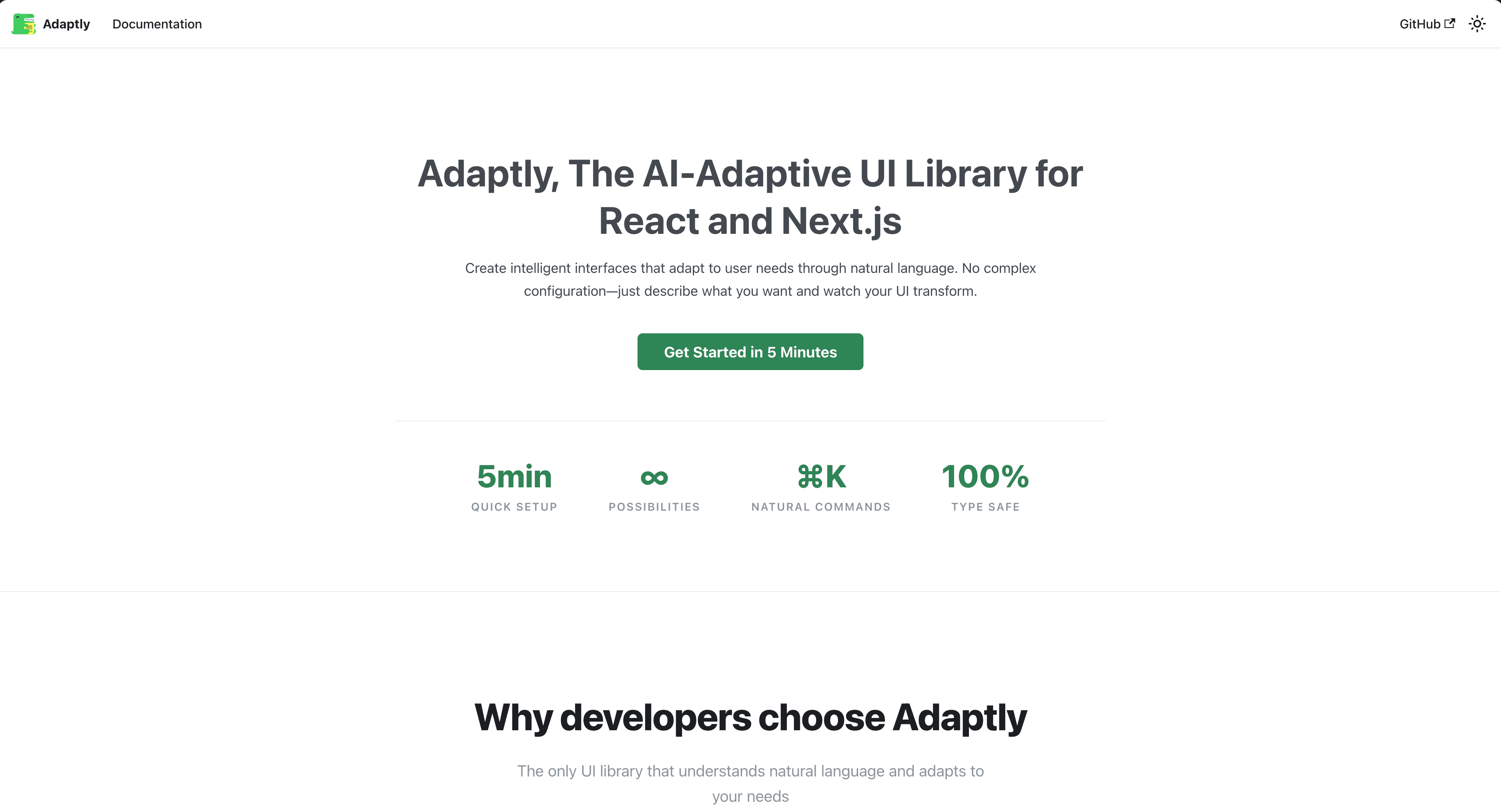By Gaurab Chhetri - Hackathon Project
Adaptly - The AI-Adaptive UI Library for React & Next.js
Adaptly brings intelligence to modern web dashboards. It's a TypeScript-first library that lets your UI understand what users mean, not just what they click.

Adaptly is an AI-adaptive UI library for React and Next.js that brings intelligence to modern web dashboards. Built during HackTX 2025 at The University of Texas at Austin, it's a TypeScript-first library that lets your UI understand what users mean, not just what they click.
Most "AI UI" tools stop at code generation. Adaptly doesn't generate code — it uses your code intelligently. The library dynamically mounts, unmounts, and arranges your existing React components to create context-aware interfaces in real time.
What It Does
- Adaptive Runtime Layer: Acts as an intelligent runtime that reasons about structure, hierarchy, and intent
- Natural Language Interface: Users press
Cmd + Kand describe what they want in plain English - Component Intelligence: Dynamically arranges your existing React components based on user intent
- Multi-LLM Support: Works with OpenAI GPT, Anthropic Claude, and Google Gemini models
- Persistent Storage: UI state is automatically saved and restored across sessions
- TypeScript-First: Full type safety and IntelliSense support throughout
Instead of navigating menus or switching dashboards, users just tell the interface what they want — and the LLM rewrites the layout in real time using your existing components.
Technical Stack
Built with Next.js 15, React 19+, TypeScript 5.9+, Tailwind CSS, and shadcn/ui. Adaptly uses AI SDK integrations for multiple LLM providers and includes a component registry system (adaptly.json) that lets the AI understand your component capabilities.
Why We Built It
Adaptly was born from a hackathon weekend at UT Austin. We wanted to create something that goes beyond code generation — a tool that makes existing UIs truly adaptive and intent-driven. The goal was to build an AI that lives inside your app's design system, not as a chat overlay.
Most dashboard builders require users to click through multiple menus. Adaptly turns that into a conversation: "Show me sales and analytics" → the UI adapts instantly.
Impact
Built in 48 hours during HackTX 20251, Adaptly is now open source and available on npm. It represents our vision for AI-assisted front-end development, where design intent and runtime reasoning work together seamlessly.
The library is production-ready and can be integrated into any React or Next.js application with a single command:
npm install adaptlyTeam
Built with an amazing team at HackTX 2025 (organized by Freetail Hackers at UT Austin):